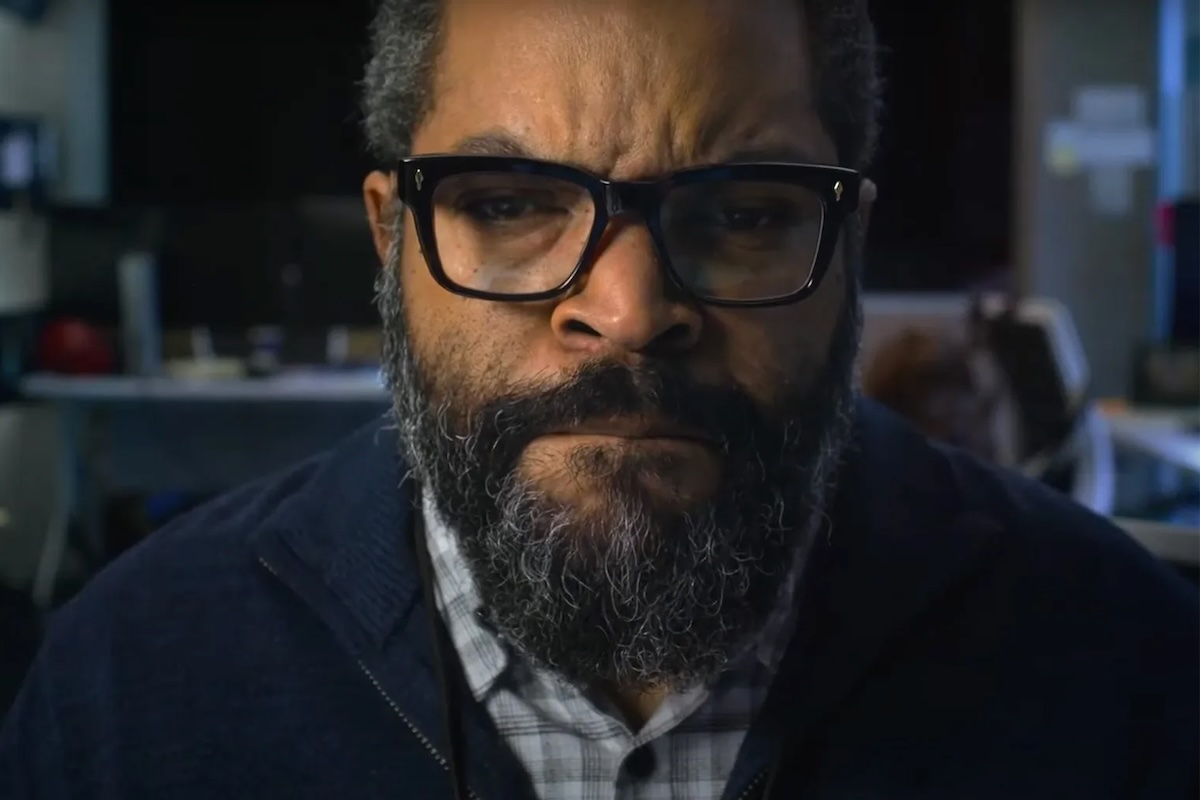The latest adaptation of H.G. Wells’ seminal “War of the Worlds” starring Ice Cube arrives not with a bang, but with a whimper, proving to be a remarkably forgettable entry in the sci-fi canon. Unlike Orson Welles’ iconic 1938 radio broadcast, which famously plunged listeners into a believable alien invasion panic, this straight-to-streaming film is unlikely to evoke any strong emotional response beyond mild bewilderment and disappointment.
Helmed by director Rich Lee and produced by Timur Bekmambetov, known for his “screenlife” thrillers, this particular “War of the Worlds review” highlights how the format struggles to convey the epic scope of a global alien invasion. Confining the unfolding planetary takeover by aggressive extraterrestrial tripods largely to one man’s desktop, the film misses opportunities for visual grandeur, instead delivering a series of lo-res video feeds that leave much to be desired in terms of spectacle and immersion.
Ice Cube steps into the role of Will Radford, a surly domestic terror analyst working for the Department of Homeland Security. Despite having access to an array of surveillance cameras across the country, Will primarily uses this sophisticated technology to monitor his own children, revealing a central, problematic aspect of his character and the film’s narrative focus. This unique take on the classic alien invasion premise attempts to blend family drama with a high-stakes global event.
Ice Cube’s performance as Radford is a point of contention in this “Ice Cube movie” critique. Displaying a limited emotional spectrum that oscillates between a perpetual scowl and exaggerated overreactions, his portrayal struggles to convince audiences that this character would be entrusted with sensitive government technology. His uncouth, street-smart demeanor, paired with black-rimmed glasses seemingly meant to convey intelligence, often clashes with the serious demands of his fictional role.
Curiously, the true underlying theme of this “sci-fi flop” transcends its alien premise, subtly shifting its focus to the intricacies of parenting. The narrative suggests that Will’s authoritarian control over his capable young adult children, Faith and Dave, is the actual conflict. It takes an intergalactic catastrophe to force him to reconsider his overbearing nature and finally grant his family the personal space they deserve, providing an unexpected, if underdeveloped, character arc.
What should have been a visually stunning sequence of destruction, typical of an “alien invasion” epic, instead devolves into a blurry, unconvincing montage of low-resolution clips. News reports deliver updates on the global military response through generic stock footage, further diminishing the sense of urgency and threat. A rare standout moment features the first asteroid cracking open to reveal a gleaming, three-legged fighting machine unfurling its menacing form, a brief glimpse of the potential the film largely squanders.
The script, co-written by Kenneth A. Golde and Mark Hyman, frequently leans into tiresome disaster movie tropes, prioritizing familial melodrama over global stakes. The attempts to humanize the Radford clan fall flat, leaving audiences with little reason to invest emotionally in their plight. Even a dramatic mid-invasion labor sequence for Faith becomes perfunctory, with Will’s participation reduced to monitoring her heart rate while juggling calls from the American president.
The film’s overt product placement for Amazon, the streaming platform releasing it, becomes particularly glaring, culminating in an absurd climax where a Prime delivery driver assists in resolving the alien threat. While the script introduces a few clever concepts, such as an updated virus capable of thwarting the invasion, the overall experience of this “streaming film” primarily offers the spectacle of Ice Cube’s memorable line delivery: “Take your intergalactic asses back home!”
Ultimately, this contemporary “film critique” concludes that the new “War of the Worlds” adaptation is a missed opportunity. Despite its intriguing casting and a novel cinematic approach, it fails to deliver on the promise of its source material, leaving viewers with a lackluster and often perplexing viewing experience that struggles to justify its runtime.





Leave a Reply